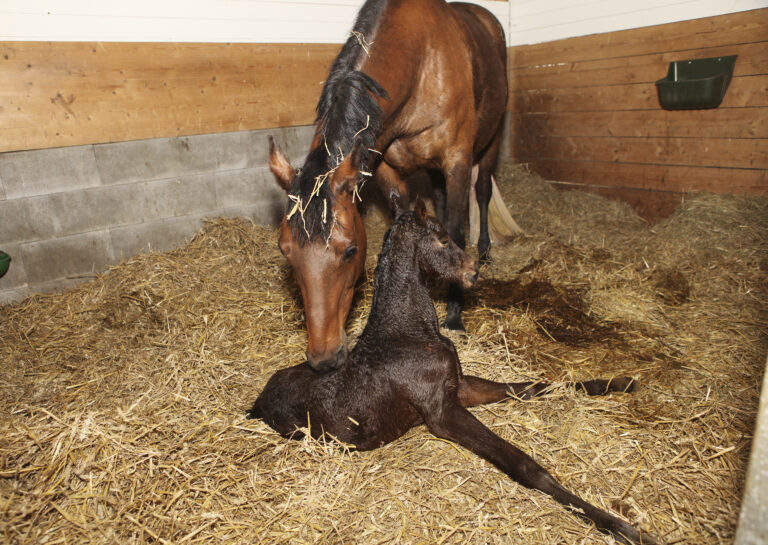
At the 10th International Conference on Comparative Exercise Physiology, a group from the Melbourne Veterinary School in Australia compared the effect of a low-exercise coupled with dietary restrictions to see if insulin sensitivity could be improved with this strategy [Bamford, N.J.; Potter, S.J.; Baskerville, C.L., et al. The effects of exercise plus weight loss on insulin sensitivity in obese equids. Melbourne Veterinary School, Australia. Comparative Exercise Physiology 14 Supplement 1].
Horses in the study were fed as much grass hay as they would eat for four weeks, then the diet was restricted for 12 weeks. Body condition scores of the 24 horses exceeded 7 (out of 9). Then, the horses were split into two groups: one group of dietary restriction only; the other with dietary restriction and exercise. The restricted diet offered consisted of 1.25% body weight of grass hay, 1 g/kg body weight of soybean meal, and a vitamin/mineral powder to achieve 85% of maintenance requirements.
Horses in the exercise group exercised on a hot walker five days a week with daily efforts of five minutes of walk, 15 minutes of trot (4.5–8 mph), followed by another five minutes of walk. Total body fat mass was measured and insulin sensitivity evaluated following an IV glucose tolerance test both before and after dietary restriction.
In both groups, total body fat mass was reduced after dietary restriction. However, insulin sensitivity did not change in the restricted diet-only group, but it did improve in the group experiencing both dietary restriction and exercise. The study results point to the benefits of low-intensity exercise for improving insulin sensitivity in obese horses fed restricted diets.
An Additional Weight Loss Study Presented
Another study presented at the 10th International Conference on Comparative Exercise Physiology compared the effects of diet and exercise on glucose metabolism from weight loss in obese horses. Moore, J.L.; Siciliano, P.D.; Pratt-Phillips, S.E. A comparison of diet and exercise for weight loss in obese horses. North Carolina State University Animal Science Department].
Ten obese horses were initially fed a diet of 100% digestible energy requirements for two weeks. Then they underwent a four-week treatment period with five horses in each of two groups. One group was fed a weight-loss diet of 83% of maintenance requirements, while the other group was offered 100% of maintenance requirements but also exercised at a heart rate that would burn 17% of digestible energy requirements. The diet offered was grass hay and a vitamin/mineral supplement mixed with 260 grams of beet pulp along with a salt block. Weekly body weight determinations were used to adjust digestible energy requirements.
On Days 0 and 28, the horses received an oral glucose test. The results noted that: “While both exercise and diet were effective weight loss strategies for horses, only exercised horses showed improvements in glucose metabolism.”








